Nutrition is the cornerstone of our health and well-being. The food we consume directly impacts our energy levels and immune system. It can be challenging to make informed choices about what we eat. This blog aims to demystify the nutritional value of your foods. And providing you with a better understanding of what’s on your plate.
The Basics of Nutrition
Before we delve into the nutritional value of specific foods. It’s essential to grasp the basics of nutrition. Food provides our bodies with three primary macronutrients and a host of micronutrients:
Macronutrients:
- Carbohydrates: These are our body’s primary source of energy. They include sugars, starches, and fiber. On average, adults should consume 45-65% of their daily calories from carbohydrates.
- Proteins: Proteins are vital for muscle growth and repair. As well as various metabolic functions. About 10-35% of daily calories should come from protein.
- Fats: Fats are necessary for hormone production and brain health. It also absorbs fat-soluble vitamins. Roughly 20-35% of daily calories should come from fats.
Micronutrients:
- Vitamins and Minerals: These micronutrients are essential for various bodily functions. Such as immune support (vitamin C), bone health (calcium), and energy production (vitamin B complex).
Now that we have a fundamental understanding of nutrition. Let’s break down the nutritional value of some common foods. And the importance of nutrition to a healthy lifestyle.
Demystifying the Nutritional Value of Foods

Apples
- Calories: 95 calories per medium-sized apple
- Carbohydrates: 25 grams
- Fiber: 4 grams
- Vitamin C: 14% of the recommended daily intake (RDI)
- Antioxidants: Apples are rich in antioxidants, which help combat oxidative stress.
Apples are a healthy snack choice due to their low calories, high fiber, and vitamin C content. They make for an excellent addition to your daily diet.
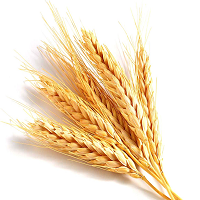
Wheat
- Calories: Approximately 120 calories per 1 cup of cooked whole-wheat pasta
- Carbohydrates: About 25 grams
- Protein: 4 grams
- Fiber: 4 grams
- Vitamins and Minerals: Wheat is a good source of dietary fiber, particularly when consumed in whole-grain form. It also contains essential minerals like selenium, manganese, and magnesium.
Wheat-based products like whole wheat bread, pasta, and cereals can be part of a balanced diet, providing energy and fiber.
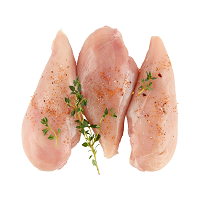
Chicken Breast
- Calories: 165 calories per 3.5 ounces (100 grams) of cooked, skinless chicken breast
- Protein: About 31 grams
- Fats: Minimal fat content
- Vitamins and Minerals: Chicken breast is a good source of B vitamins like niacin and B6.
Chicken breast is a lean protein source that can aid in muscle growth and repair. It’s versatile and can be prepared in various ways.
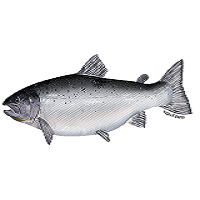
Salmon
- Calories: Approximately 206 calories per 3.5 ounces (100 grams) of cooked salmon
- Protein: About 25 grams
- Healthy Fats: Rich in omega-3 fatty acids, which are beneficial for heart health.
- Vitamin D: Good source of vitamin D.
Salmon is a fatty fish that offers a healthy dose of protein and heart-healthy fats. Also packed with nutrients like vitamin D making it an excellent choice for well-being.
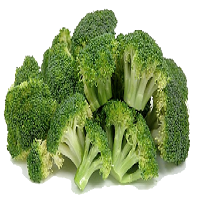
Broccoli
- Calories: About 55 calories per 1 cup of chopped, cooked broccoli
- Carbohydrates: 11 grams
- Fiber: 5 grams
- Vitamin C: 135% of the RDI
- Vitamin K: 116% of the RDI
- Calcium: 9% of the RDI
Broccoli is a nutrient powerhouse, providing essential vitamins, fiber, and antioxidants. It’s an excellent addition to any balanced meal.
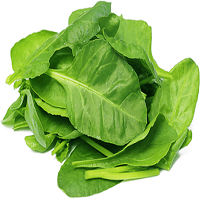
Spinach
- Calories: Approximately 7 calories per 1 cup of raw spinach
- Carbohydrates: About 1 gram
- Protein: 1 gram
- Fiber: 1 gram
- Vitamins and Minerals: Spinach is packed with vitamins and minerals. Also includes vitamin K, vitamin A, vitamin C, folate, iron, and calcium.
Spinach is a nutrient-dense leafy green vegetable. That can be consumed raw in salads or cooked as a side dish. It’s known for its role in supporting bone health, eye health, and immunity.
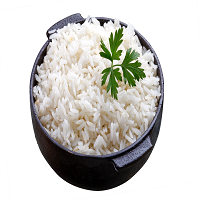
Rice
- Calories: Approximately 206 calories per 1 cup of cooked white rice
- Carbohydrates: About 45 grams
- Protein: 4 grams
- Fiber: 1 gram
- Vitamins and Minerals: Rice is a good source of manganese and contains some B vitamins. To be particular niacin (vitamin B3) and thiamine (vitamin B1).
Rice is a staple food in many cultures, providing a source of energy in the form of carbohydrates. While white rice is lower in fiber, brown rice offers more fiber and nutrients due to its less refined nature.
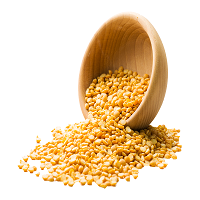
Dal (Lentils)
- Calories: Approximately 230 calories per 1 cup of cooked lentils
- Carbohydrates: About 40 grams
- Protein: 18 grams
- Fiber: 16 grams
- Vitamins and Minerals: Lentils are rich in folate, iron, potassium, and various B vitamins. Making them an excellent source of plant-based protein.
Lentils are a versatile and nutritious source of plant-based protein and fiber. They are a staple in many vegetarian and vegan diets.
Making Informed Food Choices
Understanding the nutritional value of your foods lets you to make informed choices about what you eat. While the examples provided above offer insights into specific foods. It’s crucial to maintain a balanced diet. That includes a variety of fruits, vegetables, lean proteins, and whole grains.
Here are some tips for making better food choices:
Read Labels: Pay attention to food labels to understand the macronutrient. And micronutrient content of packaged foods.
Portion Control: Be mindful of part sizes to avoid overeating, even with healthy foods.
Variety is Key: Include a wide range of foods in your diet to ensure you get a diverse array of nutrients.
Stay Hydrated: Water is essential for overall health. Make sure you’re drinking enough throughout the day.
Seek Professional Guidance: If you have specific dietary goals or health concerns, consult with a registered nutritionist for personalized advice.
Remember that good nutrition is a journey. And small, sustainable changes can lead to significant long-term improvements in your health.








